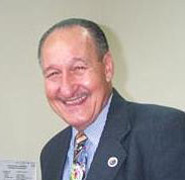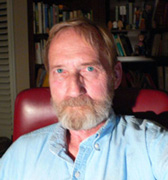 |
Dave Newberry |
 |
Steve Fitzgerald |
Fitzgerald and Newberry, who met in the late 1970s while working for the CDC on the eradication of smallpox, will present “Epidemiology Lessons Learned by Trial and Error, Necessity, Inspiration and Terror, Insight and Human Nature” on Friday, Oct. 12, at 2:30 p.m. in the Eppley Science Hall Auditorium. Refreshments will be provided.
The presentation is sponsored by the UNMC College of Public Health and Center for Biosecurity and Biopreparedness and Emerging Infectious Diseases.
Both epidemiologists have developed and administered mass vaccination programs. Fitzgerald worked on a Yellow Fever outbreak in The Gambia and organized a vaccination program that vaccinated 96 percent of the population in just 31 days. He wrote and developed an immunization program for Gambian children and stayed on to build that program, which has the distinction of achieving and maintaining the highest immunization rates in the developing world.
Newberry worked in the Smallpox and Measles Eradication Program in West Africa and was the program management officer for the Bureau of Smallpox Eradication at the Center for Disease Control and Prevention (CDC), in addition to being the CDC’s first liaison officer to Washington, establishing the first refugee-screening program for Southeast Asians.
Newberry also was the TB control officer in several states, and worked in immunization and STD control programs. After retiring from the CDC, he was the first Guinea Worm eradication program country officer in Ghana and then went to Johns Hopkins where he developed a manual for evaluating overseas health intervention programs. He recently retired from CARE, where he was the senior public health officer, spending more than 12 years working on the eradication of polio.
For the past five years, Fitzgerald and Newberry have visited Nebraska at least once a year to teach applied epidemiology for the Center for Biopreparedness Education. The eight-day self-paced course – originally developed for the Centers for Disease Control and Prevention — is conducted in a sequestered environment that allows students to focus their energies on successfully completing and mastering the discrete steps of early identification, intervention, control, and prevention of disease transmission, disability, and death involved in disease outbreak situations and bioterrorism attacks.